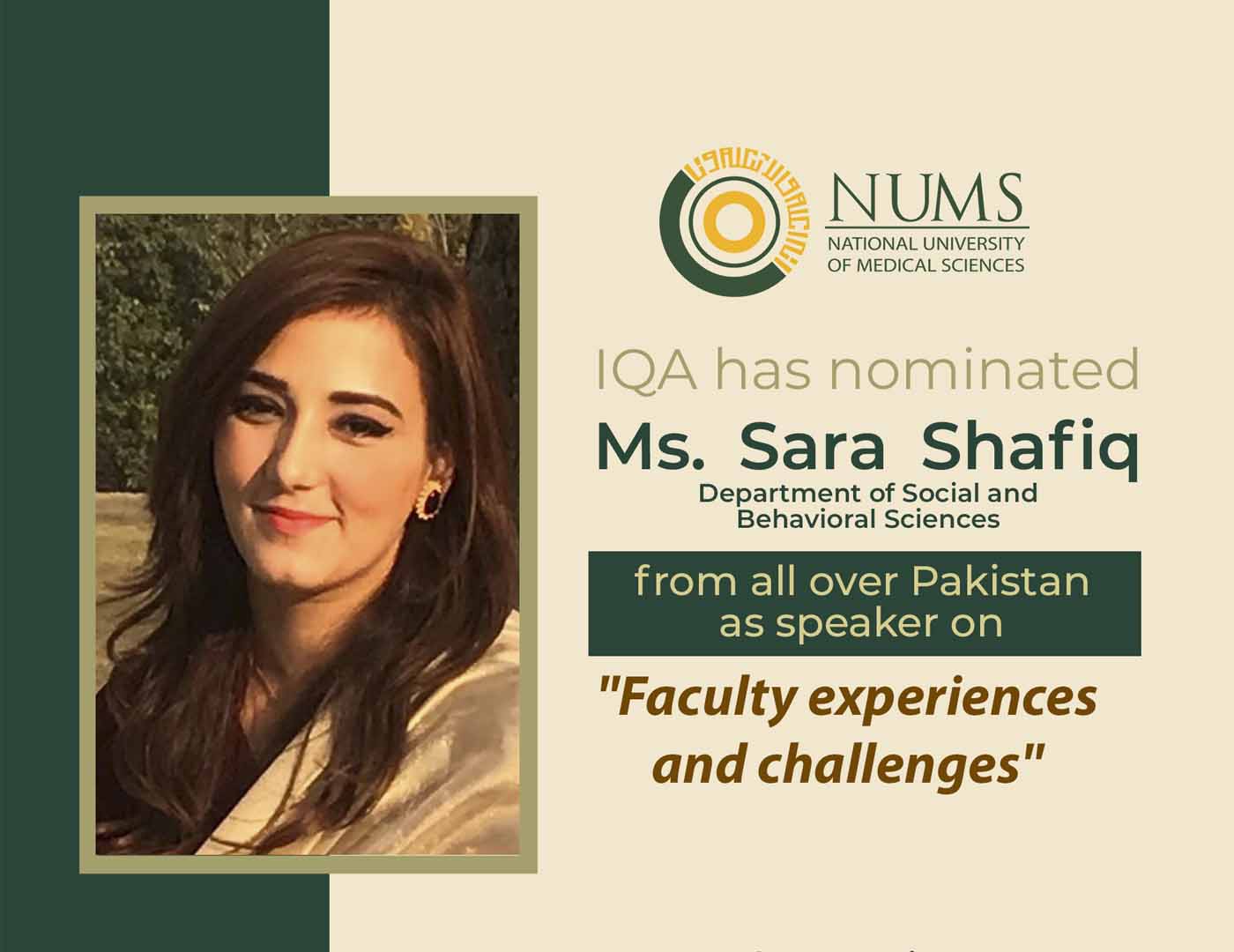
The Association of Quality Assurance Agencies of the Islamic World (IQA), and National Accreditation Agency for Higher Education (BAN-PT), Jakarta, Indonesia, jointly hosted the IQA International Webinar 2021, Series 2 on "Higher Education Accreditation amidst Covid-19 and New Normal: Opportunities and Challenges", on March 30, and April 06, 2021. The event was also supported and co-hosted by Universitas Islam Indonesia (UII), Universitas Islam Negeri Syarif Hidayatullah (UIN Jakarta), and Universitas Islam Negeri Maulana Malik Ibrahim (UIN Malang).
National University of Medical Sciences, Pakistan nominated Ms Sara Shafiq, Lecturer Department of Social and Behavioral Sciences (DSBS), to reflect her ideas on " Faculty Experiences and Challenges" in the April 06, 2021 session. Ms Sara Shafiq was the only speaker selected by IQA from Pakistan. The other speakers/discussants were from Indonesia, Malaysia, Egypt, Turkey, Bahrain and North Cyprus.
The speakers shared their experiences and statistics from the countries of the Islamic world on the subject topic. Ms Sara Shafiq, highlighted that the Covid-19 pandemic has created largest turmoil in the academic sector in human history. According to United Nation 2020 report, it has affected more than 1.6 billion students around the globe. She based her talk on the focused group discussions, interviews, personal narratives and experiences to reflect on the challenges faced by faculty of selected Pakistani Universities including NUMS and identified the opportunities that arose due to the pandemic. The Pandemic has provided the academic world an opportunity to enhance their skills with the rapidly growing Digital technology.
It was highlighted that although challenging, the Pandemic situation has brought academia of the world together, sharing best practices and learning experiences on platforms like the webinar provided by the IQA today.
Young faculty were able to adapt to the technological platforms but conventional teachers, who preferred face to face teaching, felt the pressure and had to upgrade their computing skills. She expressed that there was no substitute for practical work requirements, and most have to wait for lockdowns to ease before professional practical work could be completed.
.jpg)
.jpg)
.jpg)
.jpg)
.jpg)
